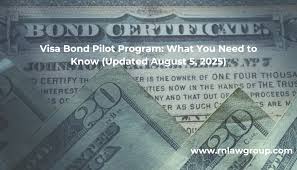Visa Bond Pilot Program: What You Need To Know
The Visa Bond Pilot Program is a U.S. government initiative introduced by the Department of State to address visa overstays by certain travelers. Officially announced in November 2020, the program required visitors from specific countries to pay a refundable bond as a condition of obtaining a B-1/B-2 visa (for business or tourism).
Purpose of the Program
The core goal of the Visa Bond Pilot Program was to:
-
Reduce nonimmigrant visa overstays
-
Encourage compliance with U.S. immigration laws
-
Test the effectiveness of bond requirements as a deterrent
The program targeted countries with overstay rates above 10%, based on Department of Homeland Security statistics.
Who Was Affected?
The Visa Bond Pilot Program applied to applicants from 23 countries with high visa overstay rates, primarily in Africa, Asia, and the Caribbean. Notable countries included:
-
Nigeria
-
Angola
-
Democratic Republic of Congo
-
Liberia
-
Djibouti
-
Afghanistan
-
Iran
Not every applicant was affected; the decision was at the consular officer’s discretion and typically applied to those deemed at higher risk of overstaying.
Bond Amounts
The visa bond amount ranged between:
-
$5,000
-
$10,000
-
$15,000
Applicants who adhered to their visa terms and departed the U.S. on time could apply for a full refund of their bond.
Duration of the Program
The Visa Bond Pilot Program was a temporary six-month program that began on December 24, 2020, and ended on June 24, 2021. It was not extended beyond this date.
Controversy and Criticism
The program faced criticism from human rights organizations and immigration advocates, who argued that:
-
It discriminated against poorer countries
-
It added a financial burden on legitimate travelers
-
It had limited transparency in how bonds were imposed
Many viewed it as a deterrent rather than a solution to structural immigration issues.
Does the Visa Bond Program Exist?
The Visa Bond Pilot Program has ended as of right now. There is no sign that it will be brought back. Nonetheless, tourists ought to keep doing:
Keep an eye on U.S. Department of State updates.
To find out the most recent visa requirements, speak with immigration lawyers or embassies.
